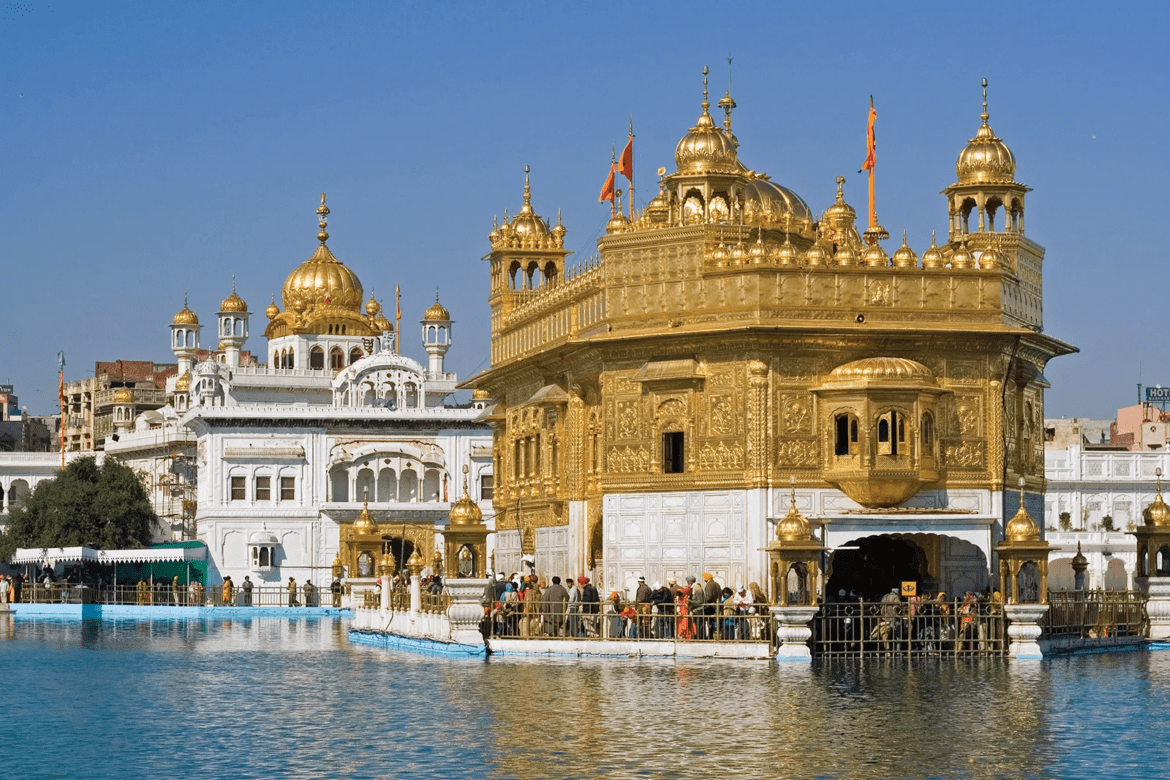AI Generated Summary
- The examples of Guru Tegh Bahadur and the Golden Temple, along with the Sikh tradition of langar, highlight the commitment of the Sikh community to promoting interfaith understanding.
- Guru Tegh Bahadur, recognizing that the right to practice one’s religion without fear of persecution is a fundamental human right, sacrificed his own life for the cause of religious tolerance and interfaith unity.
- The Sikh community’s initiatives and partnerships, such as the interfaith conference, provide a forum for people from different faiths to discuss their beliefs and break down barriers.
Sikhism is deeply rooted in promoting unity, harmony, and interfaith dialogue. Founded in 1469 by Guru Nanak Dev Ji in Punjab (India), the Sikh religion has become one of the world’s most inclusive and tolerant religions. The Sikh community, estimated to be over 20 million people worldwide, has played a crucial role in fostering interfaith dialogue and promoting religious understanding among different faiths. In this editorial, we will explore the role of Sikhism in promoting interfaith dialogue and religious tolerance, highlighting examples from history and the present day.
Sikhs have been at the forefront of interfaith dialogue and religious tolerance. One example of a notable Sikh figure who promoted interfaith dialogue and religious tolerance was the 9th Sikh Guru, Guru Tegh Bahadur. Guru Tegh Bahadur is famously known for sacrificing his own life to protect the religious freedom of Hindus in India during the times of the Mughal Empire. The Mughals, who were Muslim by faith, were oppressive towards the Hindus and demanded that they convert to Islam. Guru Tegh Bahadur, recognizing that the right to practice one’s religion without fear of persecution is a fundamental human right, sacrificed his own life for the cause of religious tolerance and interfaith unity.
Another example of the role of Sikhism in promoting interfaith dialogue is the Golden Temple in Amritsar. The Golden Temple is the holiest shrine of Sikhism, and it attracts millions of visitors from different faiths and backgrounds each year. The Golden Temple represents the inclusivity and acceptance central to the Sikh faith. All visitors, regardless of their religion, are welcome to visit and participate in the daily activities, including the free communal kitchen (langar) that serves hundreds of thousands of people daily. This inclusivity has helped break down barriers and build bridges between different faiths, creating opportunities for dialogue and fostering mutual understanding.
Moreover, the Sikh community is also actively promoting interfaith understanding and dialogue at the local level. The Sikh tradition of langar (free communal kitchen) is an excellent example. The tradition of langar dates back to the time of Guru Nanak Dev Ji, who recognized that sharing a meal brings people together, regardless of faith, caste, or social status. Today, the tradition of langar is an integral part of Sikhism and a symbol of inclusivity, equality, and sharing. The Sikh community, through their langar initiatives, promotes interfaith understanding and breaks down the barriers that exist to build bridges between people from different backgrounds.
The Sikh community has also actively promoted interfaith dialogue and cooperation through various initiatives and partnerships. The annual interfaith conference, co-hosted by the Sikh Coordination Committee East Coast, is an excellent example. The conference allows diverse faith groups to discuss their beliefs, practices, and values and promote dialogue and mutual understanding.
Sikhism has played a crucial role in promoting interfaith dialogue and religious tolerance. The Sikh faith is inclusive and tolerant and promotes unity among different faiths. The examples of Guru Tegh Bahadur and the Golden Temple, along with the Sikh tradition of langar, highlight the commitment of the Sikh community to promoting interfaith understanding. The Sikh community’s initiatives and partnerships, such as the interfaith conference, provide a forum for people from different faiths to discuss their beliefs and break down barriers. These efforts illustrate the potential of religion to break down barriers and create an inclusive society.
Sikhism has championed interfaith dialogue and religious tolerance. The rich history of Sikhism, along with the Sikh community’s ongoing initiatives and partnerships, demonstrates their commitment to promoting interfaith understanding and breaking down barriers between different faiths. The world must look towards Sikhism for guidance on promoting religious tolerance and interfaith dialogue to create a more inclusive society. We can all learn from this tradition to build a more tolerant and cohesive world that respects all religions and promotes unity.




